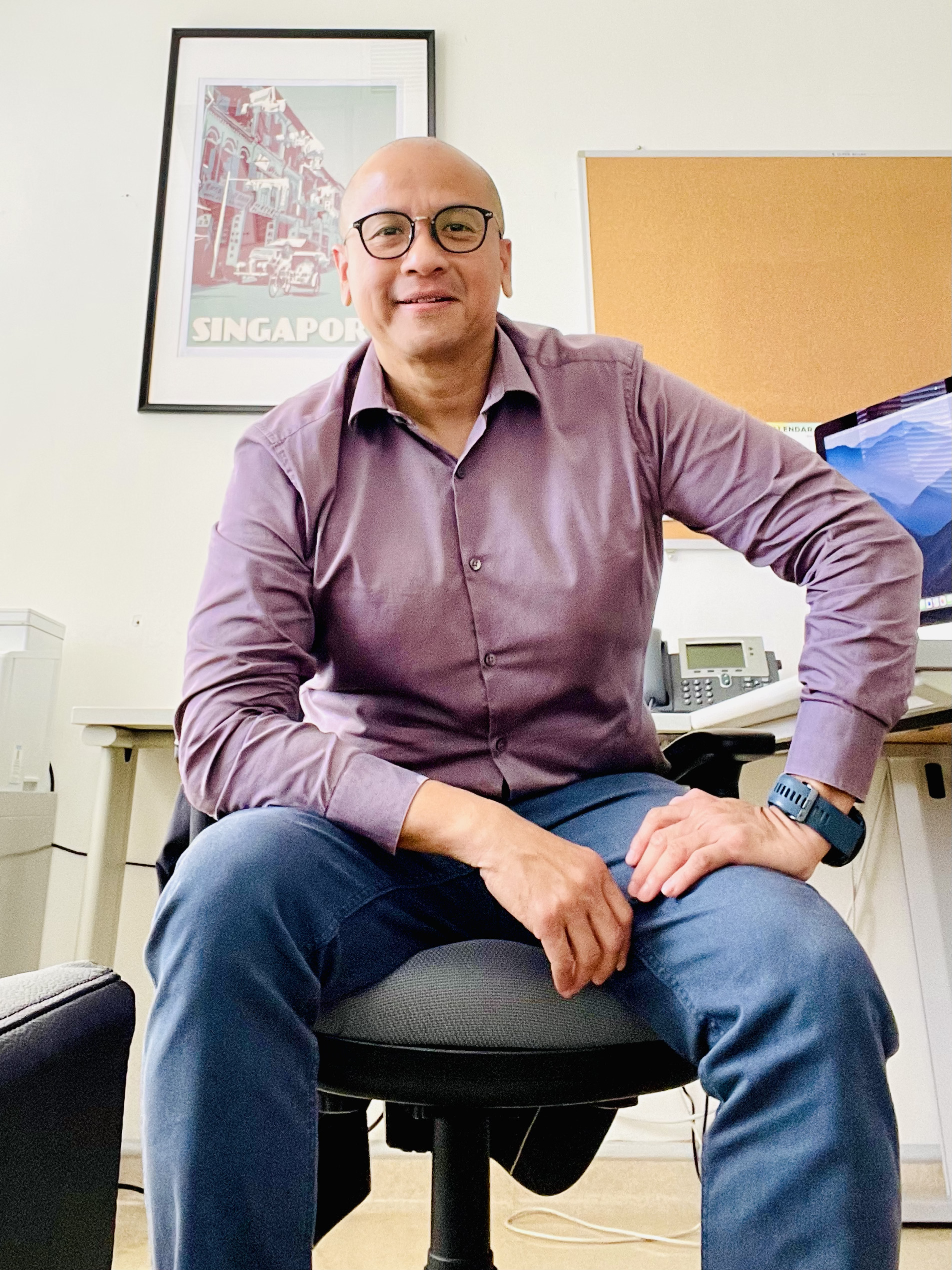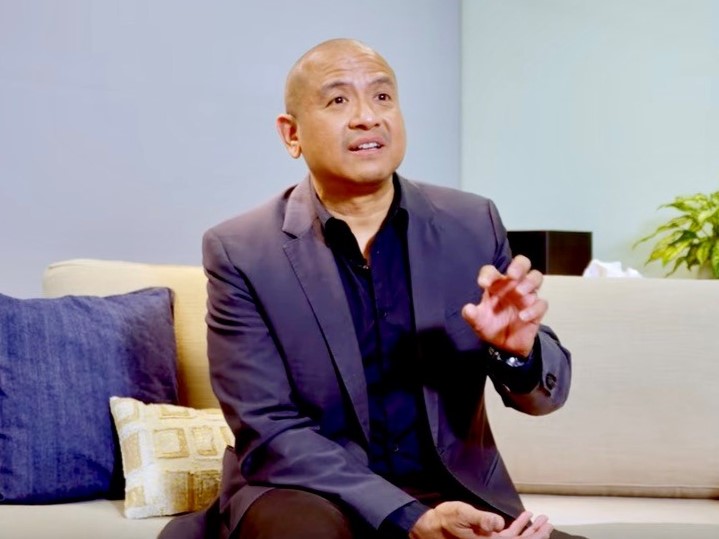Published: 2025-02-10
Kenneth Paul Tan is a scholar who defies easy categorization. His nine books, numerous journal articles, book chapters, and other works reflect a transdisciplinary agenda spanning Political Science, Sociology, Cultural Studies, Film and Media Studies, and Singapore Studies.
With more than two decades of contributions to the Social Sciences and Humanities, particularly in Cultural Studies and International Studies, Tan has received numerous accolades. Since joining Hong Kong Baptist University in 2021 under the Talent 100 initiative, he has been ranked among the world’s top 2% most-cited scientists by Stanford University for four consecutive years.
A native of Singapore, Tan earned his Ph.D. in Social and Political Sciences from the University of Cambridge. He began his academic career at the National University of Singapore (NUS), where he researched and wrote extensively on Singapore politics and culture. At NUS, he held various leadership positions, including Vice Dean for Academic Affairs at the Lee Kuan Yew School of Public Policy during a period of rapid and complex growth. He won numerous teaching awards including the prestigious NUS Outstanding Educator Award.
Reflecting his broad intellectual interests, his most recent monograph, Movies to Save Our World: Imagining Poverty, Inequality, and Environmental Destruction in the 21st Century (Penguin, 2022), examines cinema’s role in shaping social and political consciousness. His latest article, ‘Podcasting Politics in Singapore: Hegemony, Resistance, and Digital Media’, published in Critical Asian Studies, explores how podcasts are used by both political elites and dissenting voices in Singapore to control political narratives, amplify dissident voices, and challenge hegemonic dominance.
In conversation with CMCR, Tan discussed his research and shared insights into the political and cultural critiques that have shaped his work.
 |
Kenneth Paul Tan is a tenured Professor in the Department of Journalism, Hong Kong Baptist University |
Q: Tell us more about your research and what drives it.
My approach to research over the past 25 years has been guided not by the drive to maximize output, but by deep curiosity and a beginner’s mind. The questions I ask and the theories I engage with come from multiple disciplines, because I’m always searching for new and different ways to understand the world. My research interests are wide-ranging. As an undergraduate, I studied political science and economics. As a PhD student, I focused on social and political philosophy. Since then, I have expanded into film and cultural studies. For example, in 2008, I wrote a paper on Singapore cinema, analysing female ghosts and grotesque figures through a psychoanalytic feminist lens. I argued that these figures symbolized Singapore’s uneasy relationship with modernity, tradition, and its Western associations. Currently, I am working on an article on the political significance of classical music in films.
Despite my interdisciplinary explorations, Singapore has remained at the centre of my work. I am interested in understanding its political and democratic prospects by asking a range of questions: What do its television programmes, films, and podcasts reveal? How are elections conducted? How do civil society groups organise around key issues? How do principles of governance like meritocracy and pragmatism function ideologically and in practice? Taken together, these inquiries form a holistic framework for analysing Singapore.
Q: You are currently working on a book titled Decadent Technocracy, which delves into the dynamics of Singapore’s political and public sector. Can you tell us more about this book?
This book distils 25 years of my research on Singapore’s political and cultural landscape. It also reflects on my own role as a social and political critic, one who is deeply invested in Singapore’s success but also concerned about the forces that could threaten it. I explore the hidden vulnerabilities that may unravel the Singapore model, widely admired for its governance, development, and policymaking. Drawing from my formative experiences growing up within, and benefiting from, the system, I adopt a critical lens, even turning that lens onto my own critique.
At the heart of this book is the concept of ‘tragedy’. When individuals strive for great success, they often become intoxicated by their own achievements, which in turn exposes their suppressed flaws, leading to an eventual downfall. Success creates a blind spot, an inability to recognize emerging weaknesses until it is too late. Applying this ‘tragic model’ to Singapore, I examine how an exceptionally successful political model, if lacking self-awareness at its peak, could inadvertently sow the seeds of its own decline.
This book is also part of my larger project on thinking about tragedy as a political theory, in which I extend the classical notion to modern and postmodern conceptualizations. By reframing tragedy beyond the fall of the heroic figure, I consider its implications for contemporary politics, where the very structures that sustain power may, in their excesses, create the conditions for their own undoing.
Q: What are some of the underlying political and cultural criticisms that have motivated you to work on this book?
What makes Singapore’s case especially tragic is its failure to foster a culture of long-term, imaginative thinking despite its advanced analytical capabilities. While the country has the resources to anticipate future challenges, it has not cultivated a leadership style or public discourse that meaningfully engages with future scenarios. Singapore has been slow to learn authentically from past lessons in addressing emerging issues, often choosing instead to politicize both the past and the future for party-political interests.
One of the core themes I explore is how meritocracy – Singapore’s system of placing the most talented individuals in leadership positions – can ossify into what I call ‘mediocracy’, where the system sustains mediocrity rather than excellence. A second core theme is Singapore’s maintenance of social order and harmony through its model of multiracialism. This model is often deployed to supress public criticism, rendering it superficial. My concern is that multiracialism, if left unexamined, could degenerate into cultural paralysis, where Singaporeans lose sight of the complexities and dynamism of their collective identity. A third core theme is pragmatism, one of Singapore’s defining governance principles. While pragmatism has served the country well, it can also make Singapore rigid and resistant to change. The country’s success formulas, once effective, can become dogma, preventing adaptation and fostering a kind of fundamentalism and hypocrisy.
 |
Q: It is believed that critical-cultural research often analyse power structures and identify challenges in social hierarchies, sometimes, without offering much of a solution. Having identified the flawed dynamics of the Singaporean political and cultural systems, are there solutions you would proffer as a critical-cultural scholar?
This question drives the self-reflection and self-critique in my book project. As a critic, I often ask myself: ‘Am I simply dismantling ideas without offering alternatives? And if so, why?’ Sometimes, the role of a critic is not to provide solutions but to highlight potential dangers, to consider what could go wrong, without being swept up in the urgency of solving immediate problems. Society often dismisses critics as problem-mongers rather than problem-solvers. However, I believe it is essential to carve out a space where critics can speak freely, without fear of repercussions.
One analogy I often use is the court jester. The fool in the royal court was the only one licensed to speak truth to the king, using humour to convey uncomfortable realities. In the same way, critics in society should be given the latitude to ‘catastrophise’ issues and present them in ways that encourage deeper reflection. If we lose our capacity for criticism, we also lose our capacity for self-awareness. At the same time, we need people who can translate critique into actionable solutions. A division of labour between critics and problem-solvers would benefit society as a whole.
Recent Publications
Tan, K. P. (2025). Podcasting Politics in Singapore: Hegemony, Resistance, and Digital Media. Critical Asian Studies, 1–25. https://doi.org/10.1080/14672715.2025.2451755
Tan, K. P. (2024). A Thoughtfully Pragmatic Singapore. In COMMENTARY ON SINGAPORE: Foreign Policy, Governance and Leadership (pp. 197-204). https://doi.org/10.1142/9789811264559_0020
Tan, K. P. (2022). Movies to save our world: Imagining poverty, inequality, and environmental destruction in the 21st century. Penguin Random House SEA.